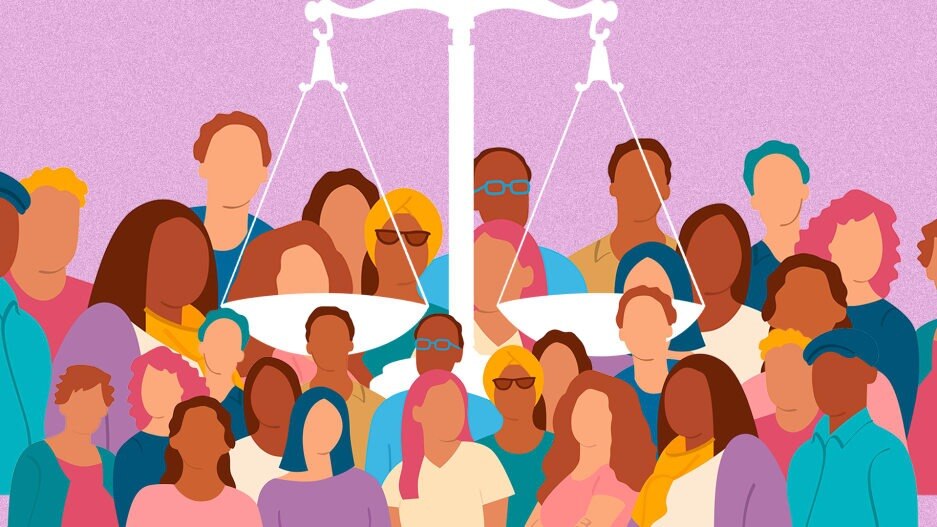- | 8:00 am
Leaders: These are the resolutions you need to make for gender equity in 2023
Pipeline Equity’s CEO notes that gender equity is a $3.1 trillion economic opportunity in the U.S. alone, so it’s in everyone’s best interest to accelerate progress toward equity.

Corporations are considered persons under certain interpretations of the law, so why not include them in the merry tradition of New Year’s resolution-making? Let’s give it a shot.
I propose U.S. corporations make three New Year’s resolutions for 2023. By committing to all these, businesses will reap the financial upside of a more diverse, equitable, and inclusive workplace. As our research shows, every 10% increase in gender equity yields a 1% to 2% increase in revenue.
ONE-UP YOUR POST-ROE COMMITMENTS
If companies want to support women, they should support pay equity in addition to their commitments to safeguard abortion access. Here’s why. Thirty-four percent of women have thought about leaving their companies because of how they handled Roe’s overturn. Yet, more than double that percentage of women, 72%, said they would not apply to work at a company where a pay gap exists.
Paying for abortion-related travel alone won’t fix workplace gender inequity. Yes, women’s bodily autonomy matters. This is a foundational right. And gender equity is about far more than the right to choose. Women also care about receiving equitable pay. They care about having equitable access to career-advancing opportunities. They care about economic mobility.
Besides, money talks. The chances of us witnessing Roe’s reversal would have depreciated significantly had we closed the gender equity gap (of which pay equity is a subset) in the workplace years ago. Have we forgotten that equity in the workplace begets equity in politics? Women are 51% of the U.S. population, 27% of Congress, and 14% of the wealthiest Americans. Money determines who makes it to the halls of power and whose voices get heard.
As a bonus, closing the gender pay gap in the U.S. would strengthen the economy by at least $512 billion. In other words, it pays to pay people equitably.
UPSKILL YOUR WORKFORCE EQUITABLY
Companies should deploy targeted skilling initiatives to ensure that half the talent base—women—have access to the future of work. As it stands, women hold fewer than 33% of all data and AI roles and fewer than 15% of all cloud computing jobs. Meanwhile, 1.5 million women have vanished from the labor force since February 2020 and companies are scouring for employees to execute their technological ambitions.
A commitment to equitably upskill the labor force would supply companies with the talent they need to achieve their strategic goals. It would also help return over $1.789 trillion to the U.S. economy (because that’s the economic upside of closing the gender gap in labor force participation).
As a bonus, equitably upskilling the workforce can prevent life-altering destruction caused by AI bias. In 2022 we saw the birth of the White House’s Blueprint for an AI Bill of Rights. We also watched as companies such as Microsoft, Amazon, and Twitter launched bias bounties in which they award thousands of dollars in prize money to engineers who find biases in machine learning models.
Now, as another defense against AI bias, let’s close the gender gap in advanced technology roles. We need an equitable distribution of lived experiences to inform the creation of technology that decides who gets a mortgage, who gets a CT scan, and who gets an arrest warrant.
MAKE #METOO OBSOLETE
The #MeToo movement predates the Harvey Weinstein reckoning of five years ago, and for its bittersweet birthday our country welcomed a new law to end binding arbitration in sexual assault and harassment cases. The Ending Forced Arbitration of Sexual Assault and Sexual Harassment Act allows sexual harassment and sexual assault survivors to file a case in a court of public law instead of being forced into private arbitration.
This law matters because the use of binding arbitration in employee agreements has grown precipitously in the past 28 years. Today, nearly 40% of U.S. employees (about 60 million) are covered by it, and 80 of the 100 largest employers require it.
Now companies should go a step further and make #MeToo a relic of the past. They can do this by:
- creating inclusive workplace cultures that are not conducive to harassment
- obviating binding arbitration for all forms of workplace inequity (not only sexual harassment)
Silencing people with forced arbitration is not a viable business strategy. Neither is sidelining them out of meaningful careers or striping them of their monetary worth.
These three resolutions represent obvious wins for gender equity and corporations. They also represent not-so-obvious yet equally significant wins for our country. Gender equity is a $3.1 trillion economic opportunity in the U.S. alone, so it’s in everyone’s best interest to accelerate progress toward equity.







































